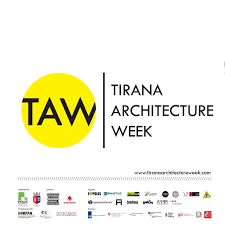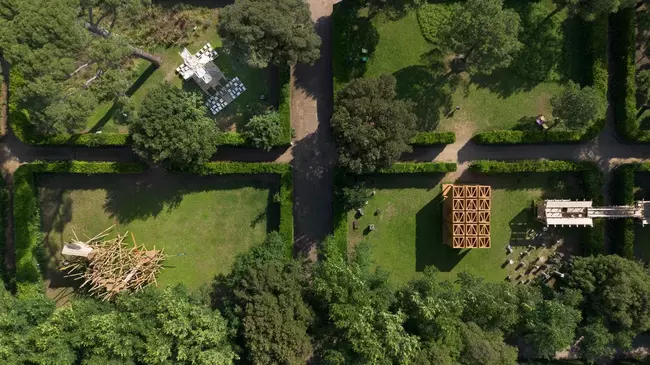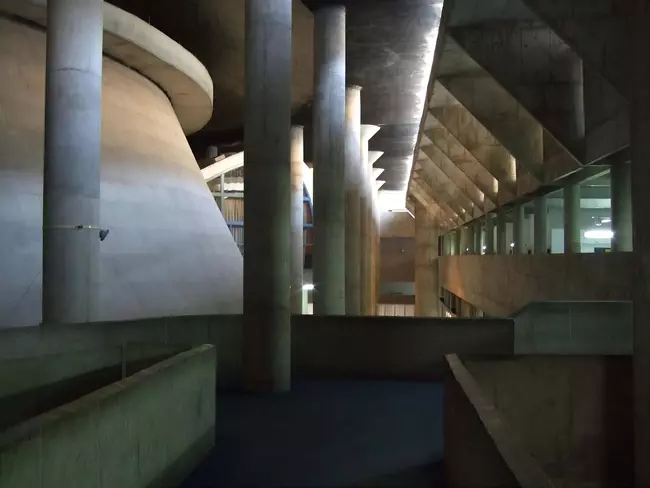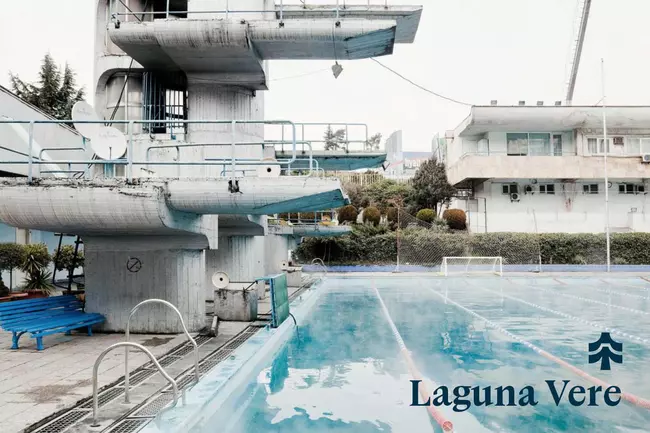- ConcoursSite Internet
DeadlinePublié le 14/02/2018
Call for Papers - Tirana Architecture Week 2018

© WBA The Call for Papers is addressing researchers and experts, who have developed relevant studies in the fields of architecture, urbanism, planning, leisure and cultural studies, sociology, geography, anthropology, etc, in the framework of 'CO-HABITATIOn' theme. Each participant is free to associate one of the main context to one of the eight topics, exploring tactics that address the concept of co-habitation.
[TOPICS]
[01_climate change]
Global warming, and the consequent desertification and water withdrawal, are leaving an indelible sign of men on the planet. Pollution, waste, morphological and biological alterations are activating a set of chain reactions, which are leading toward natural disasters like flooding and increasing biodiversity loss. In such a scenario, strategies of mitigation are not enough to reverse the trend. Researchers are invited to contribute to the session though relevant studies related to climate change, providing an in-depth understanding of the phenomenon and its consequences in a specific place or region - focusing on its impact on biological life, atmospheric conditions, landscape, and architecture - and proposing adaptation tactics aimed at the improvement of system’s resiliency.
[02_ecosystem]
An ecosystem is “a community of living organisms in conjunction with the nonliving components of their environment that interact as a functional unit, as a system”. Biological diversity is increasingly threatened by human activities. Meanwhile, attempting to manage the Earth's resources sustainably presents a formidable challenge for humankind, because the processes linking ecosystems and species are complex, and an action taken in one location may have unforeseen consequences elsewhere, often far away and many years later. Researchers are invited to give their contribute to this session, with relevant studies exploring co-habitation tactics between different living and nonliving components of specific ecosystems and regions, with particular focus on the impact of man-made ecosystems. Evaluation, comparison and integration approaches toward ecosystems, as well as, the promotion of strategies for an integrated management, conservation, and sustainable use of land, water, and living resources are welcome.
[03_energy]
The transition from a fossil fuel energy base towards renewable energy sources and broader energy saving, are among the greatest challenges for contemporary cities. The energy transition is also creating new spatialities which are yet to be acknowledged, defined, speculated and envisioned upon. The use of renewable energies is producing new scapes at different levels, and with different impacts. Therefore, it’s a challenge for the next generation of researchers, to define new spaces of co-habitation between new and old energies and between new and old spatialities. Papers that deal with theoretical and philosophical issues of energy in different contexts, based on the three pillars energy and urban settlements, energy and landscape, energy and buildings - are invited to participate to the session.
[04_memory]
The word memory has manifold meanings. Every territory has been transformed, modified, and corrupted by human intervention throughout the centuries. This condition raises the issue of different historical layers co-habiting in a given place and time. The topic has been widely discussed in the past, considering both extreme approaches: the tabula rasa and the exact replication of the past. This session stresses the need to define, within professional and academic practices, new interpretative tools, capable of harmoniously linking the past with future. Researchers are invited to contribute to this topic with relevant studies on innovative didactic, critical, and design approaches, whereby the traces of the past inform the future of design. Through creative tactics, memory can become the protagonist in architecture, city and landscape scenarios.
[05_migration]
Migration is probably the biggest social challenge of the last decades. The large human flux mobilized by this phenomenon affects the social and urban patch of our cities, it transforms our landscapes and it calls for a further reflection on the concept of boundaries. The latter, currently a core aspect of different disciplines’ research agendas, can be considered a contact zone, hybrid and porous, whereby cultural interchange and co-habitation are possible. The aim of this session is, on one hand, to explore how users perceive these spaces, their capacity of interaction and adaptability through co-habitation tactics, and on the other, to propose material and spatial solutions that overcome both, physical and conceptual boundaries. Researchers are invited to present contributions to the topic of migration and its impact in different contexts: architecture, city and landscape.
[06_mobility]
For the past two centuries many architects, planners, and politicians have been struggling with mobility issues, and attempting to offer solutions for the movement of people and goods, focusing on sustainable transport systems, spatial differentiation of transportation means and on infrastructural layering. Contributes to this session should propose a new way of approaching mobility, reviewing and exploring tactics to endorse soft mobility and accessible, integrated, and regenerative transport systems. In this session, papers are invited to address the issue of mobility in contemporary cities and its impact of civil society, urban landscape and architecture, with the aim of defining tactics for a better co-habitation between users, places and transport means.
[07_technology]
Current generations are experiencing a continuously evolving architecture practice, focused on the expanding formal and material possibilities offered by the digital age. Digital methods have fundamentally shifted the architecture discipline to a more interdisciplinary focus. Through the use of digital tools, the design process has shifted to a more accessible and streamlined process. Researchers who delve into the digital realm, seek to elevate standard building materials through non-standard fabrication methods and processes. The role of technology among architectural ideas and their physical manifestation in practice is fundamental. This session aims to reflect on innovations concerning materials and building technologies, design methods and advanced computational design practices, focusing on the co-habitation of tradition and innovation at different scales.
[08_tourism]
Tourism is a strongly impacting global phenomena, which represents both an opportunity and a risk for societies and territories. Touristic fluxes challenge architecture, cities and landscapes, by pushing the limits of reception capacity and influencing the economic, social and ecological conditions of countries. Through evaluation, comparison, and integration approaches toward tourism, this session aims to explore and observe the impact of tourism on cities and landscape from a multi-disciplinary perspective. Researchers are invited to contribute to this session through relevant tourism studies, providing an in-depth understanding of the touristic phenomena in a specific place or region, and focusing on its impact on the relationship: tourism-citizen, tourism-city, tourism-landscape and tourism architecture.

Wallonie-Bruxelles Architectures est une agence de promotion culturelle et économique des architectes de Bruxelles et de Wallonie sur la scène internationale.



